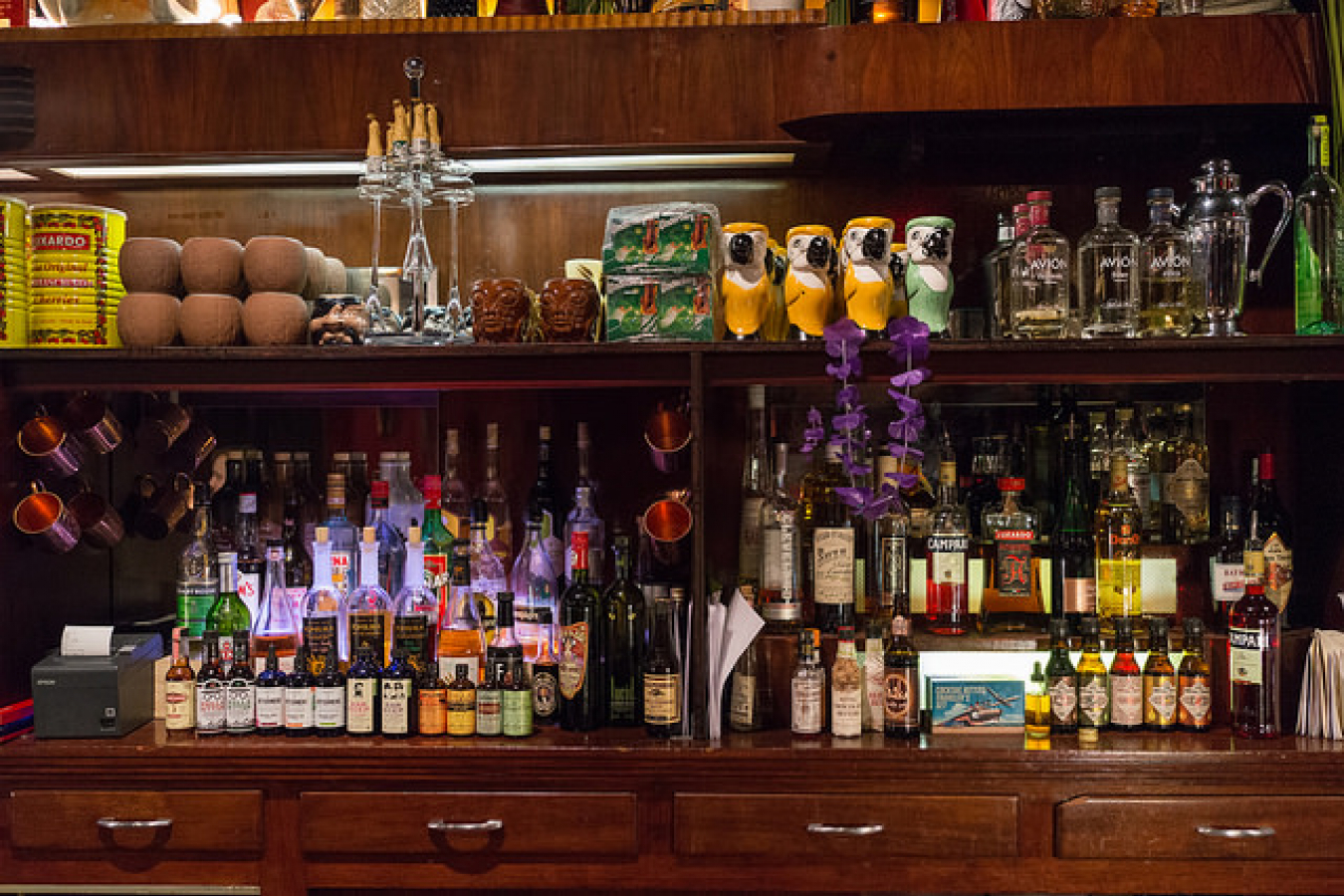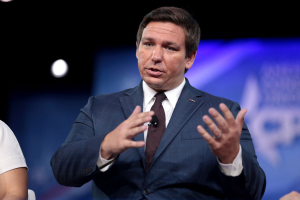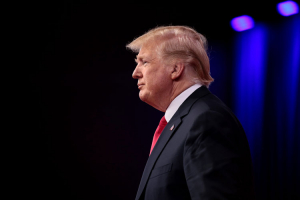Support migrant centric journalism today and donate

How do you prove you're a U.S. citizen if you can't even prove where you were born?
How do you get a Social Security number to get a job or a passport so you can travel? The Seattle Times looks at the story of a young Russian man fighting for his citizenship.
For eight years, Andrei Locklear has been trying to convince federal agencies here that he is who he says he is: the son of a Soviet dancer who gave birth to him in a Maine hotel room and a young American stage actor who initially wanted no part in his upbringing.
He says he has no birth certificate because his mother, who remained in this country illegally after her tour had ended, never registered his birth.
His story reads like a Hollywood script, the tale of a man without a country. He has no school, dental or medical records — no evidence of a childhood spent anywhere.
It doesn't help, either, that he speaks with a thick Russian accent — the result, he says, of being raised among Russian immigrants in a Brooklyn neighborhood, and being home-schooled in Russian by his mother.
At 28, he has never officially held a job or attended school.
Three years ago, an immigration judge in California upheld Locklear's claim of citizenship after considering evidence Locklear presented to avoid deportation — including a sworn statement from a dance-troupe friend of his mother's claiming that she had witnessed his birth, and the results of a DNA swab test linking his paternity to 49-year-old Stephen Locklear of Issaquah, a cook at a Bellevue retirement home whom Andrei tracked down eight years ago.
The elder Locklear says he has no doubt that he is Andrei's father.
Yet the finding by Judge Michael A. Kilroy in the deportation case — which differs from a declaration of citizenship granted to immigrants who go through the lengthy immigration process — has not been enough to persuade the Social Security Administration to grant Andrei Locklear a Social Security number or the State Department to issue him a passport.
Neither agency is bound by Kilroy's ruling, both saying they demand a higher standard of proof. And both are skeptical of Locklear's account.
"It's simply not a believable story," said Tim Beard of the Social Security Administration in Seattle. "The majority of folks who come to us with those kinds of allegations turn out to be frauds."
A Portland immigration attorney, Brent Renison, says while Locklear's story seems incredible, he could be part of an indeterminate but likely small number of Americans unable to prove their citizenship.
Renison, who once worked in the Passport Agency, said many of those are people who were born in the U.S. but spent all or much of their lives abroad, developing accents and lifestyles that are characteristically un-American. They are undeportable, yet find themselves locked out.
"And [Andrei Locklear] appears to be one of them," he said.
With few exceptions, a person born in the U.S. is a citizen regardless of the nationality or legal status of his parents. Regardless of where Locklear was born, his citizenship status would have been guaranteed if his father's paternity had been legally recognized before Andrei turned 21.
Even assistance from U.S. District Judge John Coughenour hasn't helped. A friend of a friend of Stephen Locklear's, the judge steered the Locklears to appropriate individuals within the Passport Agency and asked Perkins Coie, a Seattle law firm, to take the case for free.
"We believe the decisions by both the Passport Agency and the Social Security Administration were improper in light of the overwhelming evidence proving Andrei's citizenship and status," said Locklear's attorney, Charles Sipos.
"The persistent denial by those two agencies is not warranted in light of the evidence that we've provided them."
If he could get a passport, Locklear believes he could get a Social Security card. But he is in a standoff with the Passport Agency, whose regional director has asked him to provide a blood DNA test, considered more reliable for determining paternity than the earlier swab test.
Locklear wants a guarantee that this would be the last piece of evidence he is asked to provide. "I've done everything they've asked — provided everything they've asked for," he said, checking off a list of documents he's already provided.
The government won't make any such promise.
And so he stubbornly resists, while his father begs him to reconsider and his attorneys offer to pay for the test.
Trapped at home
Many who have heard Locklear's story have a hard time believing it. What American, after all, speaks with such a heavy foreign accent, the Locklears are often asked.
They say they've endured such skepticism since they began trying to reconstruct the younger Locklear's early life. Both say they believe Andrei's mother could provide some answers. But Andrei says he has lost touch with her in the eight years since he left New York and headed West to find his dad.
He tracked down Stephen Locklear at a Capitol Hill apartment where he was living at the time.
"Naturally, I was skeptical," Stephen Locklear said. But he said Andrei provided details from his mother that no one else could have known. "He said, 'This is what happened, and here I am. Can you help me?' "
Stephen Locklear said he has since gone into debt trying to help his son establish his identity. The futile effort has also taken an emotional toll on Andrei who, unemployed, depends on the elder Locklear for food, clothes and a place to live.
"He's like a 10-year-old kid who lives in my house," Stephen Locklear said. "He can't go to college; he can't get a job."
Andrei speaks little, whether about his cryptic past or his uncertain future.
He has no real hobbies and no friends in the Issaquah apartment complex where they live.
"The worse his depression gets, the more of a problem alcohol becomes," Stephen Locklear said. "We get into arguments about it and he leaves."
Often, he heads for California, where he's lived on the streets in Santa Barbara and where records show he's been arrested often for shoplifting. He has faced similar charges in King County.
"How a federal judge can rule, and then be completely ignored at someone's personal whim, is beyond me," Stephen Locklear said.
Questions remain
Renison, the Portland immigration attorney, said that in immigration court, Andrei Locklear was entitled to a presumption that he is an American — that the burden fell on the government to prove that he wasn't.
The government failed to do that, Renison said, and the immigration judge's finding was a reflection of that. Immigration judges "don't have the authority to say, 'I hereby decree that you are a U.S. citizen,' " Renison said.
Now, he said, the burden is on Locklear to prove to the Passport Agency and the Social Security Administration (SSA) that he is who he claims to be.
In the absence of a birth certificate, officials from both agencies require secondary evidence — medical records, school and public records — to prove "you didn't spring forth from the earth fully formed," said Trip Atkins of the Passport Agency here.
Beard of the SSA said that while having a passport would help Locklear obtain a Social Security number, "it would by no means end our questions.
"If someone claims to have gotten this far without a Social Security number, our operating stance is that we don't believe them."
Other doubters say Locklear's story is too pat, that parts of it just don't add up.
While many Russians, including well-known artists, made prominent public defections during the 1970s, Locklear's mother, Galina Kosevich, supposedly remained here under cover.
According to the Locklears, her troupe had been traveling the U.S. during the mid-1970s and was in Spokane when she met Stephen Locklear, then a 20-year-old from Seattle who was performing in a play there.
They spent a weekend together, her English as poor as his Russian.
Some six months later, Stephen Locklear said, she contacted him in Seattle to say she was pregnant, and he panicked.
"My life was just beginning," he said. "I said 'No, I won't do this.' She maintained that I was the father all along. She gave him my last name."
As Andrei Locklear tells it, his mother bore him not in a hospital but in a hotel room. She raised him in the Brighton Beach section of Brooklyn, he said. From television, neighborhood friends and books, he taught himself to speak English.
He said his mother worked as a seamstress to support them and talked often of the father he had never met.
"At one point it was a dream of his to travel back to where the other side of his family is," Stephen Locklear said. "But we can't even go to Canada."
A string of mistakes
Andrei Locklear admits he's made blunders that have intensified his problems.
At 18, he said, he became so fed up with his mother's stern upbringing, he stowed away aboard ships to get to and from Europe. But upon his re-entry to the U.S., he was taken into custody after he was unable to produce identification.
He said he gave authorities a false Russian name because he was afraid, and immigration attorneys at the time began a process to win him asylum as a Russian refugee. He was released, but was to report back for scheduled immigration hearings, which he did not do.
Soon thereafter, he said, he headed west for Washington state, not realizing the birth certificate his mother had given him was a fake.
In Seattle, he and Stephen Locklear tried to use the birth certificate so he could finally get a Social Security number. They said the government later notified them by mail that it was a fake.
The Locklears say that in trying to get a valid birth certificate from Maine, they searched in vain for medical, dental or immunization records. "She was Russian Orthodox, and it's almost a certainty he was christened," though they could find no evidence of it, Stephen Locklear said.
Working from Seattle, they tracked down the dance-troupe matron in Siberia who claimed to have witnessed Andrei's birth and a troupe member who claimed to remember it. Both provided sworn statements. But the state of Maine called the evidence insufficient to prove that Andrei was born there.
In 2003, on one of his sojourns to California, Locklear was arrested and turned over to immigration authorities, who had an outstanding warrant for his failure seven years earlier to report for an immigration hearing. He was detained for 10 months as authorities considered to which country they should deport someone claiming to be a U.S. citizen.
In December that year, an immigration judge upheld Locklear's claim of citizenship, ending the attempt to deport him.
Since he's been in Washington, Locklear has registered to vote and has been informed by mail that he must register for the draft. The state has given him an ID card. Yet the two documents he most covets — a U.S. passport and a Social Security card — continue to elude him.





















